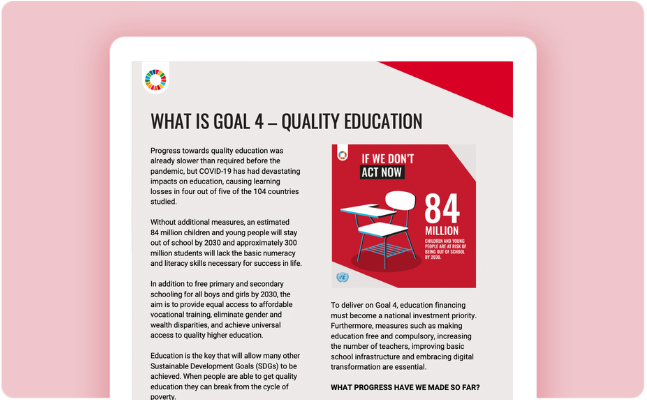The real estate market is a crucial aspect of the global economy, as it involves the buying, selling, and renting of properties. It is a highly dynamic and constantly evolving sector, influenced by various factors such as economic conditions, government policies, and demographic changes. Property prices play a significant role in the real estate market, as they determine the value of a property and its potential for investment.
In this blog post, we will delve into the current trends in the real estate market and analyze the factors that influence these trends. We will also look into future predictions for the real estate market and what they mean for buyers, sellers, and investors. So, let’s dive in!
Overview of the Real Estate Market
Before we dive into the trends and factors influencing the real estate market, let’s first understand what the market entails. The real estate market comprises residential, commercial, and industrial properties and is driven by supply and demand. When there is high demand for properties, prices typically rise, and when there is low demand, prices tend to decrease.
The real estate market is also influenced by external factors such as interest rates, inflation, and economic growth. For instance, when interest rates are low, borrowing money becomes more accessible, leading to an increase in demand for properties. On the other hand, when inflation is high, property prices may rise due to an increase in construction costs.
Now that we have a general understanding of the real estate market let’s explore the current trends in the industry.
Current Trends in the Real Estate Market

Increase in Property Prices
One of the most significant trends in the real estate market is the steady increase in property prices. According to data from the National Association of Realtors, the median existing-home price in the United States increased by 23.4% from July 2020 to July 2021. This surge in property prices can be attributed to the high demand for properties, low-interest rates, and a shortage of inventory.
The COVID-19 pandemic has also played a significant role in the increase in property prices. With more people working from home and prioritizing larger living spaces, there has been a surge in demand for suburban and rural properties. This trend has led to bidding wars, driving up property prices even further.
Shift Towards Online Real Estate Transactions
The pandemic has also accelerated the shift towards online real estate transactions. Virtual open houses, 3D home tours, and digital signing of documents have become the new norm in the real estate industry. This trend not only provides convenience but also allows buyers and sellers to conduct business safely during these uncertain times.
Online real estate transactions have also expanded the market by allowing buyers from all over the world to invest in properties without being physically present. This trend has opened up new opportunities for both buyers and sellers, making the real estate market more globalized.
Rise of Sustainable and Smart Homes
Sustainability and technology have become increasingly important factors in the real estate market. There is a growing demand for eco-friendly homes that are energy efficient and equipped with smart technology. These homes not only reduce carbon footprints but also offer cost-saving benefits for homeowners.
Incorporating sustainable features such as solar panels, energy-efficient appliances, and water-saving fixtures can significantly increase the value of a property. Smart home technology, such as security systems and automated lighting, are also becoming popular among buyers. This trend is expected to continue as more people become environmentally conscious and seek modern conveniences in their homes.
Factors Influencing Market Trends

Now that we have looked at the current trends in the real estate market let’s explore the factors that influence these trends.
Economic Conditions
Economic conditions play a crucial role in shaping the real estate market trends. When the economy is thriving, consumer confidence is high, leading to an increase in demand for properties. On the other hand, during an economic downturn, consumers tend to be more cautious, resulting in a decrease in property prices.
For example, the 2008 financial crisis had a significant impact on the real estate market, with property prices declining by 20% in the United States. The pandemic also caused a brief dip in property prices, but they quickly rebounded due to low-interest rates and high demand for properties.
Government Policies
Government policies can have a direct impact on the real estate market. For instance, tax incentives for homebuyers, such as the first-time homebuyer credit, can stimulate demand for properties. On the other hand, changes in tax laws can have adverse effects on the real estate market, impacting property prices and sales.
Zoning regulations and building codes also play a role in shaping the real estate market. These regulations can dictate where and how properties can be built, which can affect property values and supply in a particular area.
Demographic Changes
Demographic changes, such as population growth and migration patterns, also influence the real estate market. As populations shift from urban to suburban areas, demand for properties in these areas increases, driving up property prices. Changes in demographics, such as an aging population or an increase in single-person households, also impact the types of properties in demand.
For example, millennials are now the largest group of homebuyers, and their preferences for living spaces, such as open floor plans and eco-friendly features, have influenced the real estate market trends. As the younger generation continues to enter the market, their preferences will continue to shape the industry.
Future Predictions
Given the current trends and factors influencing the real estate market, what can we expect in the future?
Continued Increase in Property Prices
Experts predict that property prices will continue to rise in the coming years, albeit at a slower pace than seen in recent months. As economies recover from the pandemic and interest rates remain low, demand for properties will continue to drive up prices.
Emphasis on Sustainability and Technology
Sustainability and technology are expected to play a more significant role in the real estate market in the future. With the threat of climate change becoming more apparent, buyers will prioritize eco-friendly homes. Smart home technology is also expected to become more widespread, offering convenience and cost-saving benefits for homeowners.
Growth of the Suburban Market
The trend towards suburban living is expected to continue as more people seek larger living spaces and a quieter lifestyle. This shift is likely to have a significant impact on urban areas, where property values may decrease due to a decrease in demand.
Conclusion
In conclusion, the real estate market is constantly evolving, driven by various factors such as economic conditions, government policies, and demographic changes. Property prices are a significant factor in shaping the industry, and they are expected to continue rising in the coming years. The pandemic has brought about new trends such as virtual transactions and a focus on sustainability and technology, which are expected to shape the future of the real estate market. It will be interesting to see how these trends and factors will continue to influence the industry and what it means for buyers, sellers, and investors.









